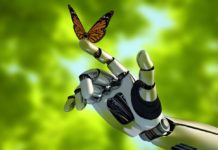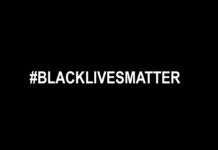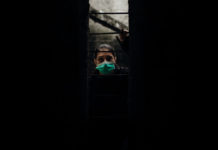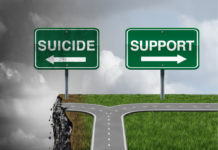Reporting the COVID Crisis at Psychiatric Hospitals: A Missed Opportunity
In its coverage of the impact of COVID on psychiatric hospitals, the media missed opportunities to challenge stereotypes and interrogate problems with current carceral approaches to mental health treatment.
World Benzodiazepine Awareness Day 2020
This week on MIA Radio, we present the second part of our podcast to join in the events for World Benzodiazepine Awareness Day 2020...
Racism and Radical Psychiatry
A radical caucus within the American Psychiatric Association tried to combat systemic racism in the 1960s. So why is the APA still behind the times?
Angela Peacock – Medicating Normal
An interview with Angela Peacock who talks of her experiences of being prescribed benzodiazepines, her journey off multiple medications, her continuing work in veterans advocacy and her thoughts about the film Medicating Normal which will be screened on World Benzodiazepine Awareness Day, July 11.
Voicehearing, Reinaldo, and My Work as The Writer
The Writer has outlined a significant work through my hands, dictated by the voice of someone who lived at some point a long time ago, such as London in 1682 A.D.
The Year I Lost Everything, Psychiatry Offered Nothing
After a failed suicide attempt following my son's death, New York State incarcerated me in a mental institution for 21 days. The environment was degrading, stultifying, and downright depressing.
Suicide & Candy Corn: The Utility and Challenges of Risk Assessments
Researchers admit their suicide risk assessments work only about as well as random guessing, and they can lead to harm. We can instead focus on finding new ways to form connections that might help tether someone to this world.
Instrument of the Machine No More
Early in my social work career, I truly believed that medication and forced confinement helped heal “mental illness.” Then an abrupt awakening completely altered my worldview.
Does Stranger Mean Danger?
Are those diagnosed with “mental illness” more dangerous than other people? Or have we evolved to sense danger from anything that we believe to be different or "strange"?
John Read and Irving Kirsch – Electroconvulsive Therapy (ECT) Does the Evidence From Clinical...
An interview with John Read and Irving Kirsch to discuss their paper which calls to prohibit ECT. This is because the negative effects of ECT are so strong, the evidence supporting it is so weak (especially in the long-term and beyond the improvement due to placebo) and there are other means of addressing the difficulties that the person is struggling with.
End Police “Wellness Checks.” Now.
If you are a mental health worker or advocate, there's a way to help dismantle police brutality and systemic racism in the U.S.
We Must Not Be Silent On George Floyd & Systemic Racism.
Dear Mad in America community: How much have we grown? Can we join together in working toward our liberation, bound together as activists?
Withdrawing Kids from Psych Drugs: Why, How, and When
Here are methods for reducing or eliminating a child's psychiatric medications that I have seen work well over years of supporting families through this process.
Recovery: Stressing the Social Basis of the Process
Recovery involves engaging in new material and social contexts and in open dialogues where new ways of understanding and handling the situation are created.
Supporting Children and Parents to Withdraw from Psychiatric Medication
The main problem with prescribing psychiatric drugs to children is that it hasn’t been very effective.
Should You Ever Ask Someone “Are You Suicidal?”
For every person “Are you suicidal?” may assist, there are many more of us who are scared into silence when those words are uttered. Why? Well, “Are you suicidal?” is, in fact, the king of the suicide risk assessment questionnaire. “Are you suicidal?” has become the red, neon, flashing sign that screams “Stop! Don’t talk to me!” Perhaps this might just explain why suicide risk assessments are well known not to work.
Should We Diagnose Donald Trump?
I have been involved in hundreds of commitment hearings in which psychiatric diagnoses were crucial. In that context, I have never witnessed the presence of all three factors: (1) the transparent (honest) use of diagnostic labels (which includes the acknowledgment of the inherent biases built into the labels as well as their limited validity), (2) allowing full voice to and full acknowledgment of the labeled person’s view of reality, and (3) using the labels in a manner that produced a useful understanding, which in standard mental health practice would require that the understanding be significantly more beneficial to the labeled person rather than the labeler.
Meditation Triggered My Psychosis; Reiki Healed It
James and I started talking about how we each fell on the path as seekers. He told me that he was a reiki master. A seed was planted within me. Even though my previous meditation practice did not work out, I still had spiritual longings and wanted to try again.
What COVID-19 Has to Teach Us About Psychiatric Oppression
The answer to DJ Jaffe’s question as to whether or not forced incarceration in psychiatric facilities leads to fear of psychiatric facilities (or of reaching out for help in general) is an obvious one. Yet, it is important that we find ways to use this opportunity to draw the connections in bold, impossible-to-miss lines, and turn this crisis into a learning opportunity that might actually help move psychiatric oppression out of the shadows of the unknown and into the light.
DSM Led Us Far Astray. Life Story Is the Path to Truth.
When the DSM-5 came out six years after the study was published, it ignored the evidence that psychological injuries caused 88% of “depression” in adulthood. It wasn't just this study that was sidelined. All the research that linked childhood trauma to later episodes of “depression” was ignored as well.
No Good Evidence That Antidepressants Prevent Relapse
Trials of antidepressants for relapse prevention are confounded by withdrawal effects caused by the drugs.
When Psychology Speaks for You, Without You: Sunil Bhatia on Decolonizing Psychology
MIA’s Ayurdhi Dhar interviews Sunil Bhatia about decolonizing psychology, confronting the field’s racist past, colonial foundations, and neoliberal present.
Suicide Prevention and Service Failure in the U.K.
It's really hard to talk about suicide. We are constantly constrained by the notion that our mental health is our individual responsibility to manage, told to “live our best lives” by a never-ending campaign of exploitative wellness fads. A more collective conversation is needed.
Why Compassionate Activism?
Compassionate Activism encourages people to “take a second look,” as Deron and Linda advised me to do. It is not the easiest thing to do, as we have learned the language and lived the life that profits some while others suffer. Knowing what has happened before can help light a pathway to where we want to be, so sharing the history of mental health is a big part of CA.
Dialogue Is Just What the Doctor Ordered: Town Halls in a Time of Crisis
The next Town Hall in this Dialogical Series, which is being jointly convened by MIA, HOPEnDialogue, and Open Excellence, will be held on May 15th at noon Eastern U.S. time. It will feature a discussion between Russell Razzaque of London, Regina Bisikiewicz of Poland, Corinne Hendy of Nottingham, Rob Cotes of Atlanta, and Martijn Kole of Utrecht that begins with their experiences of fostering a dialogical perspective in systems of “mental health” care.

































